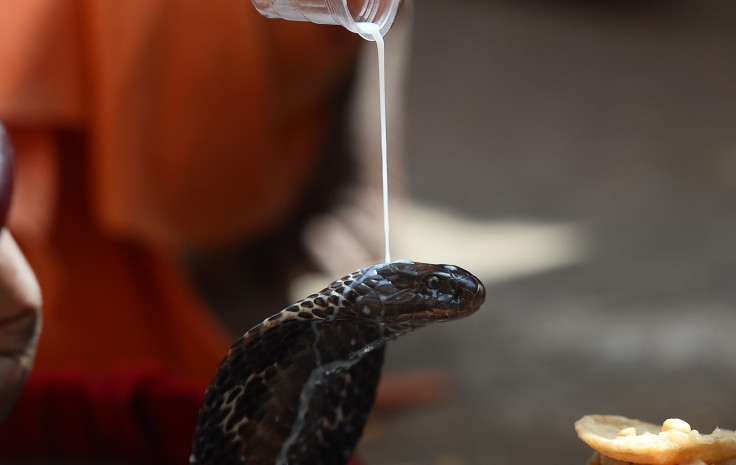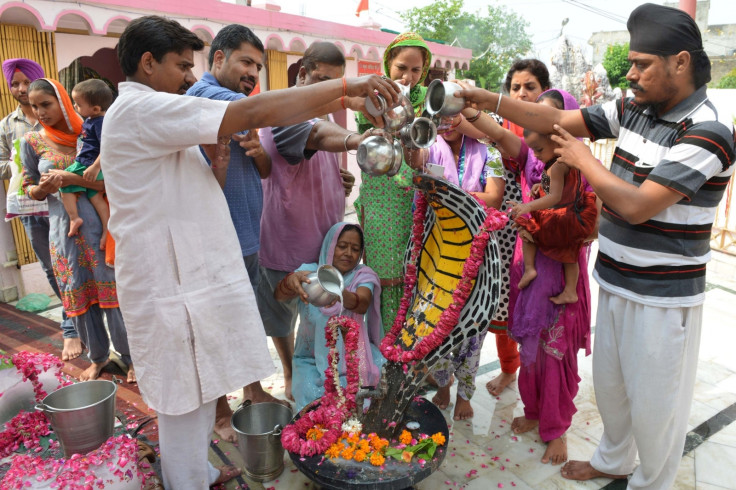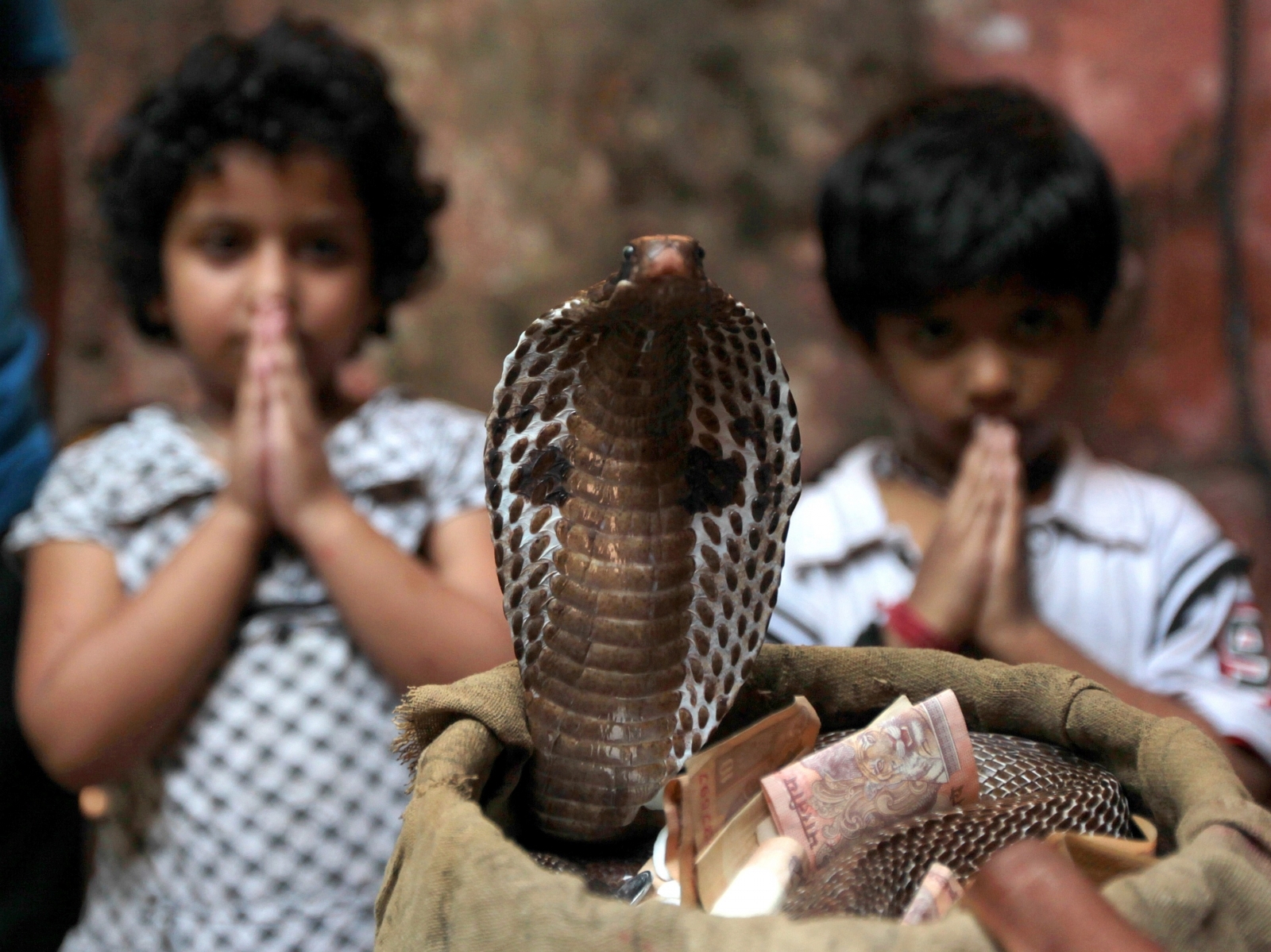Nag Panchami 2017: Hindus across India worship snakes with offerings of milk
The festival took place this year on 27 July and pays homage to the animal most associated with Lord Shiva.

Hindus across India celebrated Nag Panchami on 27 July. The festival pays homage to the animal that is associated with one of the principal deities of Hinduism, Lord Shiva who is most often depicted with a hooded cobra draped around his neck.
Devotees of the god — who is recognised as the 'destroyer and transformer' — visit Shiva temples where they worship stone figures of snakes (nag), as well as live ones. Worshippers offer milk, rice and flowers to the reptiles in exchange for blessings and protection for their families.

While all snakes are venerated, people pray to twelve snakes, in particular which are mentioned by name in Hindu scriptures-- Ananta, Vasuki, Shesha, Padma, Kambala, Karkotaka, Ashvatara, Dhritarashtra, Shankhapala, Kaliya, Takshaka, and Pingala.
The auspicious day also happens to fall during the Indian monsoon season when snakes are more commonly found. According to Hindu teachings, they are not to be harmed if found in homes and should be encouraged to leave the premises.
There are various Hindu legends surrounding snakes and the role they played in mythology. One of the most recognised stories involves the deadly snake Kalia which was poisoning one of India's major rivers, the Yamuna. Lord Krishna defeated Kalia before forcing him to take back all the poison from the water source. In return the deity instructed that worshipers who offered milk and prayers to snakes Nag Panchami would have their troubles removed.

Another legend describes a time when a pot of deadly poison Kalakatoom was about to destroy all creation. Shiva drank the dangerous substance but a few drops fell on the ground. Before they could cause havoc, they were consumed by the deity's favoured animal — snakes. To reduce the impact of the poison on both, Shiva and the snakes, the Devtas (gods) performed Ganga Abhishek (pouring of milk) on them.



© Copyright IBTimes 2025. All rights reserved.






















